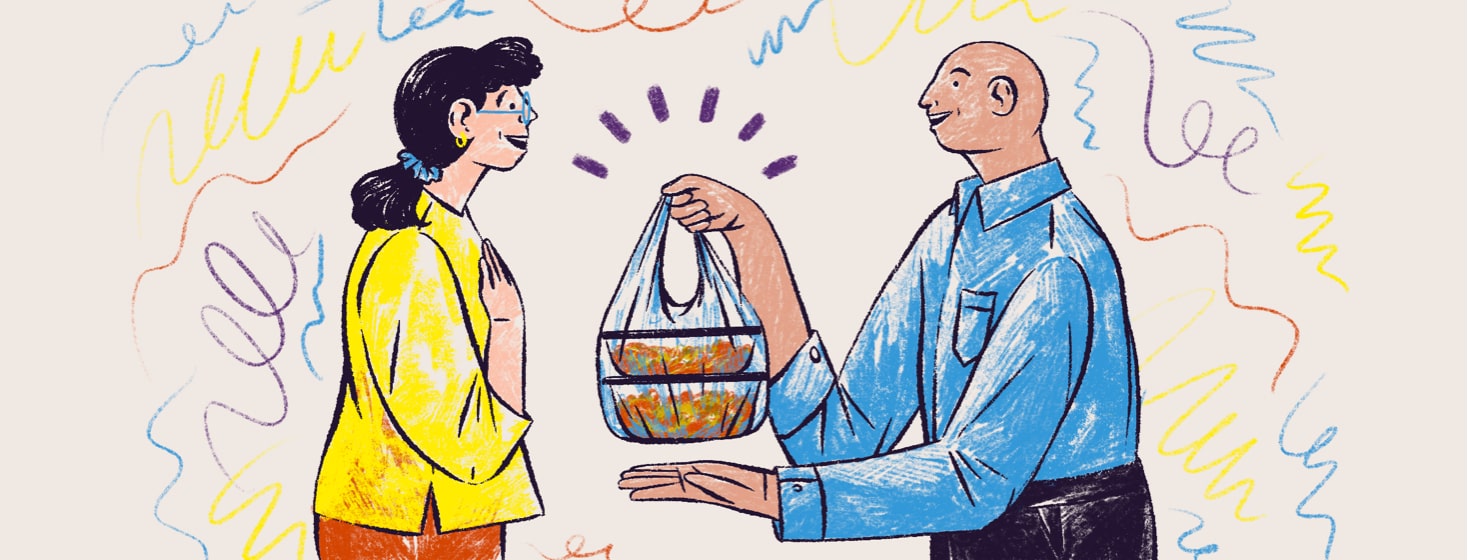The Best Way to Help Your Visually Impaired Loved One
"How can I help?"
"Please let me know if you need anything."
"What do you need from me?"
These are all very well-intentioned questions that we have each asked at one time or another.
When offering help doesn't work
However, rarely do these offers actually work. Think about it. How many times have you offered help to someone in need only to be turned down? We’re left with a simple "Thank you" and a fleeting strong desire to do something. Then we wait to be told what to do; a request that never comes.
Holidays can be especially tough
With the holidays in full swing, there’s even more need for help. As well as more of a desire to help others when we can. If you have a loved one who is struggling with a new macular degeneration diagnosis or new changes to their vision, this article is for you! Let’s chat about ways to actually help our loved ones who are struggling this holiday season (and all year long).
We all go through difficult times
We all go through them, right? The times where we’re knocked to the ground, battling our way through the days. I know that, in the past, when I’ve been through really difficult times, I always appreciated others telling me to reach out if I ever needed anything… But, I never ended up reaching out for various reasons.
We don’t always know what we need
During our toughest moments in life, we may not know what it is that we need. We may feel too overwhelmed, distraught, and emotional to form that clarity of thought. Our difficult moments sometimes send us plummeting into survival mode.
A new diagnosis or progressed lost vision can really bring a person down. In survival mode, we can’t always plan for what comes next. This catastrophe is new to us and that is often why offered help is turned down. Or, why do we tell our thoughtful and caring loved ones we don’t need anything even if we really do.
We may feel like a burden
One of the things I read most about the topic of asking for help (or being offered help), is that it feels burdensome. Many adults who are diagnosed with macular degeneration are adults who haven’t needed help in a very long time. This is a difficult change and a painful revelation. It feels very much like a loss of independence. And that’s a really scary thing to acknowledge.
What loved ones can do instead of offering
If you really want to help your struggling loved one, try to be more specific and intentional about the help you’re offering. Actually, instead of offering to help upon request, just simply do something helpful. My personal philosophy on helping others is ‘Don’t ask. Do.” Oftentimes, help is as simple as bringing in the mail or trash cans or stopping by to keep a friend company during a stressful time.
Can you double the batch when you cook dinner and make a special delivery? Or, maybe drop by on your way to the grocery store and offer a ride-along? Can you pay the neighbor kid to mow their lawn or hire a cleaning service?
Thank you
When life gets hard, it’s imperative that we are not only there for one another, but that we understand the pain and fear that can accompany needing help in the first place. If nobody has thanked you lately for being the kind of friend or family member that cares enough to help, let me be the first. Thank you. The world needs more people like you. I see you and so does your loved one (even when their vision isn’t as clear as it once was).
Andrea Junge

Join the conversation